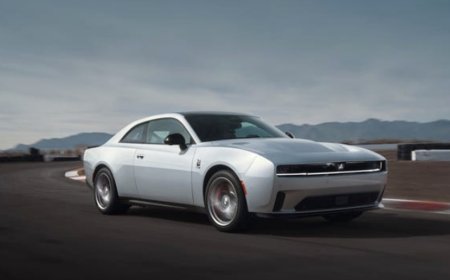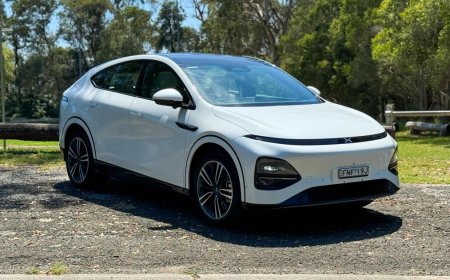UK's absurd £15,000 fine per car EV policy hurts automakers and buyers
Automakers in the UK are grappling with substantial penalties after failing to meet ambitious electric vehicle sales targets.

The UK’s push for electric vehicles (EVs) reached an impasse in 2024. EVs accounted for a record high of 31% of new car registrations in December. Yet, despite this late surge, automakers fell short of the government-mandated annual target of 22% EV sales.
This shortfall leaves manufacturers facing fines of up to £15,000 ($18,600) per non-compliant vehicle, with some turning to a credits-trading system or planning to exceed future quotas to mitigate penalties. A flood of incentive spending helped manufacturers boost EV sales through the tail end of 2024, but industry officials say that such an approach is unsustainable in driving EV adoption over the long term.
Related: Chinese automakers build their way around tariffs
Struggles to meet consumer demand
While the UK government aims to phase out internal combustion engine (ICE) vehicles by 2030, automakers warn that sales targets are outpacing consumer adoption. Businesses and fleets, not private buyers, are driving the current demand. In fact, only 10% of private buyers opted for an EV in 2024, citing concerns over affordability, charging infrastructure, and range anxiety.
Mike Hawes, CEO of the Society of Motor Manufacturers and Traders, called the discounts fueling December's EV sales unsustainable, predicting further challenges as the target rises to 28% in 2025.
Related: BYD closes 2024 on Tesla’s heels
Economic consequences loom
The industry’s struggle to meet these mandates isn’t just about fines—it’s also reshaping the manufacturing landscape. Stellantis, the parent company of Vauxhall, recently announced it would cease van production in Luton after 120 years, citing EV regulations as a factor. This move affects 1,100 jobs and underscores the broader economic stakes of the EV transition.
Ford, meanwhile, has also reduced its UK workforce, attributing part of the downsizing to lagging EV sales. Despite automakers' inability to meet the UK’s EV quota, the United Kingdom recorded some of the biggest gains in EV adoption of any European country last year.
Related: Porsche walks back EVs - people still want gas cars
A softening stance?
The UK government has acknowledged these challenges and will consult with automakers on potential revisions to the EV sales mandate. Transport Secretary Heidi Alexander emphasized the need for clarity and support, hinting at possible flexibilities such as extending hybrid sales through 2035.
Environmental advocates, however, warned that softening the mandate could slow the transition to cleaner transportation. The Energy and Climate Intelligence Unit projected that meeting future targets will require an unprecedented increase in EV adoption, far beyond the growth seen so far.
Related: 2025 Toyota 4Runner fuel economy manages to be better—and also worse
Final thoughts
As automakers scramble to meet stricter quotas and avoid hefty penalties, the UK faces a delicate balancing act. Its ability to align ambitious climate policies with market realities will determine not just the future of the automotive industry but also the pace of the nation’s green transition.
The consultation on potential adjustments closes in February, leaving manufacturers little time to shape the next chapter of the United Kingdom’s EV policy.











































